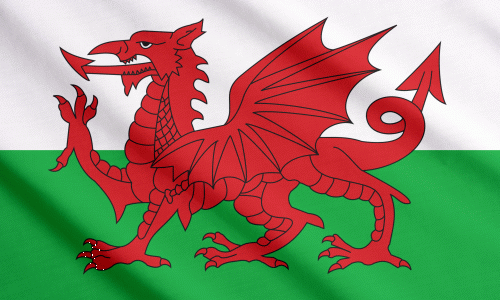
Digital Vision & Strategy 2020-22
Yesterday, Today and Tomorrow
The world is changing rapidly, and we need to equip learners of all ages with the skills they need for their digital future. This means ensuring our classrooms keep up with emerging technologies and the skills needed to use them.
The modern workplace is evolving at lightning speed, with distributed teams, brand-new business models, and complex security issues. It is a flexible and ever-changing space. The right digital tools connect and support employees, wherever they are, to encourage productivity, engagement, and collaboration. With the adoption of digital technology, the way employees perform their everyday tasks looks very different in 2021 than it did in 2000, or even 2010. Due to the flexibility of modern working, including hotdesking and the increasing prevalence of mobile work devices, the modern workplace is location- and device-agnostic and not time constrained in any way.
We want learning at The Dell to prepare learners for these working practices and principles and to be digitally confident and competent to thrive in the world they know today and the world we cannot predict in the future.
The COVID pandemic provided unprecedented opportunities for adults, children and wider society to use technologies for communicating and learning. The global health emergency necessitated the use of existing skills and the rapid learning of new digital skills in all parts of our communities in order to continue to work, communicate and access services and support.
Pupils at The Dell
This generation of children has come into a world in which digital technology is abundant. Their world is a world of technology which they start interfacing with from a very young age.
The majority of children at The Dell Primary School are increasingly adept at using technology to research, communicate, create, share, edit, present, find out and explore. However, it is important that we ensure that all pupils in our school are equipped with the skills they might require to adapt to an ever-changing technological landscape. Our children are presented with a wide range of opportunities and experiences to ensure they can successfully utilise their digital skills and knowledge in a variety of contexts.
We know from our COVID school closure experiences and analysis that nearly all pupils already had access to information communication technology in their home at the start of the school closure period.
What is Digital Competence?
Digital competence is the set of skills, knowledge and attitudes to enable the confident, creative and critical use of technologies and systems in an increasingly digital world. It is a cross-curricular theme and will be the responsibility of all practitioners and teachers to include within their lessons. Digital competence is distinct from ICT but they are highly interrelated (particularly in primary education). It’s likely that there will be some overlap between the DCF and computer science. However, Digital Pioneers have developed the DCF working on the basis that coding will primarily feature in computer science.
Aspects of our Digital Vision & Strategy at The Dell (Summary) - Details in our Strategic Plan
-
Infrastructure
-
Equipment
-
Tools
-
Taught Curriculum
-
Staff Skill Sets
-
Safety
-
Corporate Communication
-
Support
Digital Competence Framework
1 - Citizenship
Through these elements learners will engage with what it means to be a conscientious digital citizen who contributes positively to the digital world around them and who critically evaluates their place within this digital world. They will be prepared for and ready to encounter the positive and negative aspects of being a digital citizen and will develop strategies and tools to aid them as they become independent consumers and producers.
Elements
-
Identity, image and reputation
-
Online behaviour and online bullying
-
Health and well-being
-
Digital rights, licensing and ownership
2 - Interacting and collaborating
Through these elements learners will look at methods of electronic communication and know which are the most effective. Learners will also store data and use collaboration techniques effectively.
Elements
-
Communication
-
Collaboration
-
Storing & Sharing
3 - Producing
These elements cover the cyclical process of planning (including searching for and sourcing information), creating, evaluating and refining digital content. Although this process may apply to other areas of the framework, it is of importance when creating and producing digital content. It is also essential to recognise, however, that producing digital content can be a very creative process and this creativity is not intended to be inhibited. Digital content includes the production of text, graphics, audio, video and any combination of these for a variety of purposes. As such, this will cover multiple activities across a range of different contexts.
Elements
-
Sourcing, searching and planning digital content
-
Creating digital content
-
Evaluating and improving digital content
4 - Data and computational thinking
Computational thinking is a combination of scientific enquiry, problem-solving and thinking skills. Before learners can use computers to solve problems, they must first understand the problem and the methods of solving them.
Through these elements learners will understand the importance of data and information literacy, and they will explore aspects of collection, representation and analysis. Learners will look at how data and information links into our digital world and will provide them with essential skills for the modern, dynamic workplace.
Elements
-
Problem-solving and modelling
-
Data and information literacy




